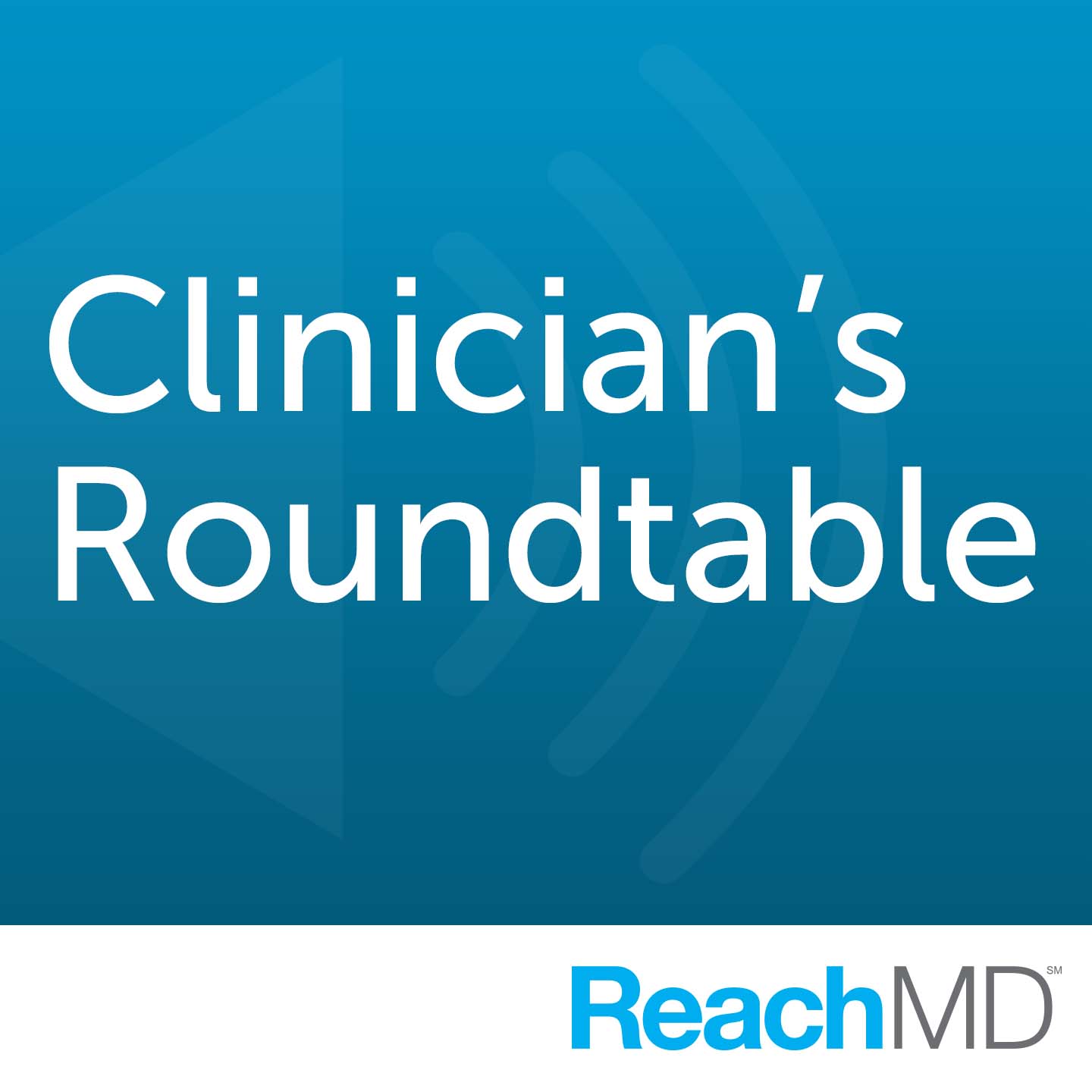

Clinician's Roundtable
ReachMD
Tune in to interviews with the top thought leaders in medicine exploring the clinical and professional issues that are foremost in the minds of the medical community. Join us at the Clinician's Roundtable for discussions on a vast range of topics that every medical professional should know about.
Episodes
Mentioned books

Jun 4, 2008 • 0sec
Validity of Physician Ranking Systems
Host: Larry Kaskel, MD
Guest: Nancy H. Nielsen, MD, PhD
How valid are consumer based physician ranking systems? In this segment Dr. Larry Kaskel learns the American Medical Association's position on physician ranking from AMA President Nancy Nielsen, MD, PhD who says while the information in these systems obviously cannot be relied upon we should try to understand why these systems are being created. Consumers want to know more about the quality of their doctor. What to do if you have been rated poorly? How do you find your true ranking? Join us to find out.

Jun 4, 2008 • 0sec
Tiered Physician Networks
Host: Larry Kaskel, MD
Guest: Nancy H. Nielsen, MD, PhD
The trend of comparing and ranking physicians by economic efficiency has reached a breaking point. Insurers use ratings to create tiered programs, offering incentives to steer patients to their list of preferred doctors. How are physicians placed on this preferred list? As AMA President Dr. Nancy Nielsen explains, patients are often forced to base their choice of doctor on cost. How are tiered networks impacting healthcare in other ways? Find out more with host Dr. Larry Kaskel.

Jun 4, 2008 • 0sec
Alerts for Physician Prescribing Errors
Host: Bruce Japsen
Guest: Leah Binder
Prescribing errors continue to be a major problem. But Leah Binder, chief executive officer of The Leapfrog Group, tells the Chicago Tribune's Bruce Japsen about a computerized physician order entry evaluation tool developed by the business community that enables medical providers to determine how well their system alerts users to common but serious prescribing errors.

Jun 4, 2008 • 0sec
Hospitals Making Leaps in Quality Improvement
Host: Bruce Japsen
Guest: Leah Binder
Rating hospitals has become the hallmark for the Leapfrog Group. Leah Binder, the Chief Executive Officer of The Leapfrog Group, tells the Chicago Tribune's Bruce Japsen about new quality ratings in this year's Leapfrog Hospital Survey.

Jun 4, 2008 • 0sec
Understanding and Managing Tendinopathy
Host: Sherwin Ho, MD
Guest: Nicola Maffulli, MD, MS, PhD
How can you help your patients with overused tendons and tendinopathies, like Achilles tendon problems and tennis elbow? Dr. Nicolas Maffulli, professor and chair of trauma and orthopaedic surgery at Keele University School of Medicine in Staffordshire, England, clinically specializes is tendinopathy. He says that we often misconceive tendinopathy as a degenerated tendon, when the problem is an actually injured tendon that cannot heal. Studies show that genetics as well as overuse may play a role in tendinopathy. Join us to learn about the latest research, treatment options and when the best solution may be surgery. Dr. Sherwin Ho hosts.

Jun 4, 2008 • 0sec
Preventing Injuries in Competitive Cyclists
Host: Sherwin Ho, MD
Guest: William J. Bryan, MD
In many regions of our country, summer weather means more outdoor activities, competitive cycling among them. Though cycling is great exercise, our patients must take proper caution to limit their injury risk. Host Dr. Sherwin Ho talks with Dr. Bill Bryan, former medical doctor for the United States cycling team and an avid cyclist, about a range of cycling injuries, from carpel tunnel syndrome to the typical joint pains. What advice can you give your patients t help them avoid injury?

Jun 3, 2008 • 0sec
Rating Physicians: Google's Foray Into the Controversy
Host: Bruce Bloom, DDS, JD
Guest: Roni Zeiger, MD
Host Dr. Bruce Bloom welsomes Dr. Roni Zeiger, product manager of Google Health and primary care physician, to discuss the controversial realm of physician ratings and how Google will enter this arena.

Jun 3, 2008 • 0sec
Google Health: Privacy & Features
Host: Bruce Bloom, DDS, JD
Guest: Roni Zeiger, MD
Google Health seeks to do for medical patients what it does for general search. What does Google Health offer our patients now, and what does it seek to provide in the future? Discussing Google Health - focusing around both privacy and possibility - with your host, Dr. Bruce Bloom, is Dr. Roni Zeiger, product manager of Google Health and primary care physician.

May 29, 2008 • 0sec
Teenagers and STDs: A Too-Common Pairing
Host: Jennifer Shu, MD, FAAP
Guest: Jill Grimes, MD
The Centers for Disease Control (CDC) has indicated that 19 million Americans — including one in four teenage girls — are infected with at least one sexually transmitted disease (STD). As physicians, we know that these diseases are far more common than most people think. But are we doing our best to educate our patients and provide appropriate screening measures? How can physicians work to debunk common public misconceptions about STDs? Dr. Jill Grimes, a practicing family physician in Austin, Texas, and author of Seductive Delusions: How Everyday People Catch STDs, addresses a series of erroneous beliefs about STDs and offers counsel on the most effective ways for physicians to help tackle this critical public health problem. Dr. Jennifer Shu hosts.

May 29, 2008 • 0sec
Alzheimer's Disease: What Do Physicians Need to Know?
Host: Jennifer Shu, MD, FAAP
Guest: Jill Grimes, MD
More than five million Americans struggle with Alzheimer’s disease. How can you determine if your patients' moments of forgetfulness are an early sign of this illness? How can you help families make tough decisions about independent living? Dr. Jill Grimes, a practicing family physician in Austin, Texas, and author of the chapter on Alzheimer’s in the 5-Minute Clinical Consult textbook, joins host Dr. Jennifer Shu to share her insight on diagnosing, caring for and counseling our Alzheimer’s patients. What adjustments can we make to our practice to best assist patients and their families coping with the burdens of Alzheimer’s?


